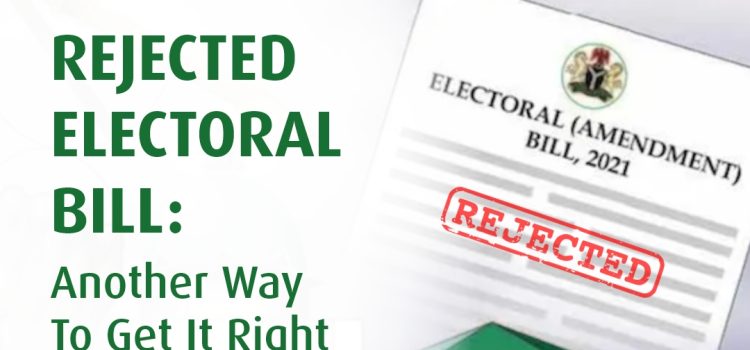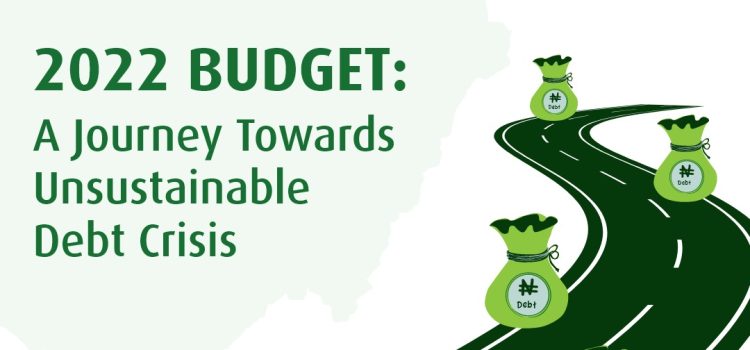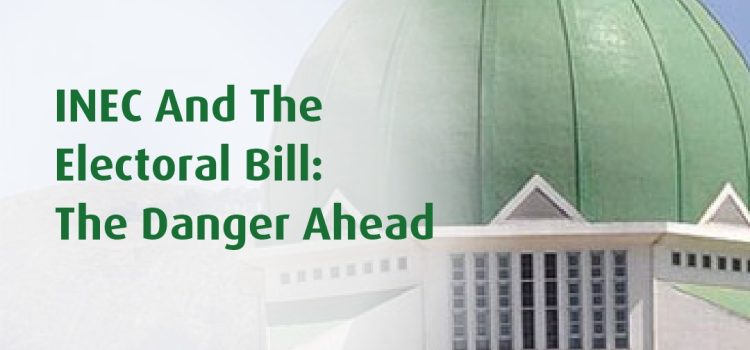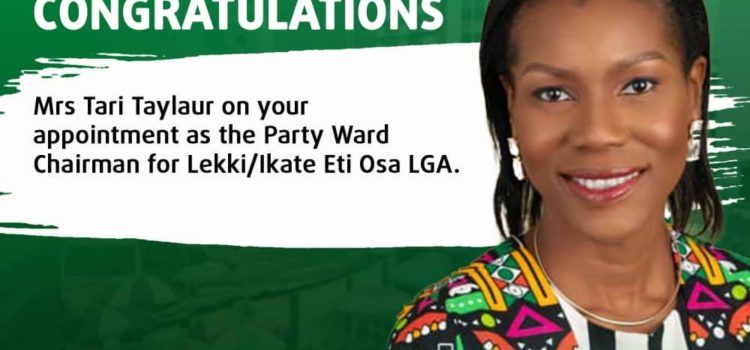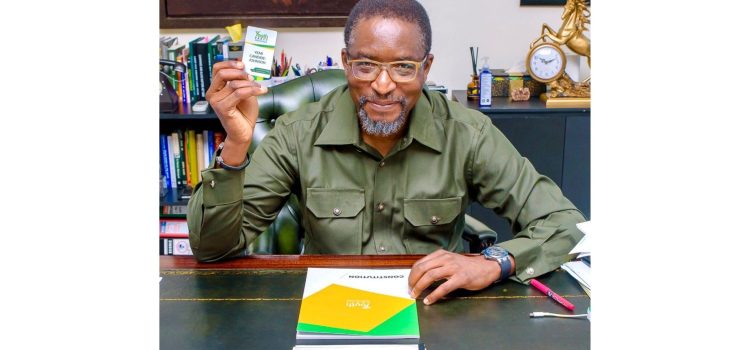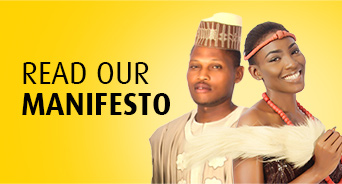Anna Ekeledo is the Executive Director of AfriLabs, a network organisation of over 300 technology innovation hubs spread across 49 African countries, which helps develop programmes and build partnerships that support African innovation hubs and other stakeholders to raise high potential entrepreneurs that stimulate economic growth and social development in Africa. She holds a first-class degree from Covenant University and M.Sc. from Leeds University Business School in the UK.
An international speaker, trainer, innovation ecosystem builder and mentor, she is also an advisor, member of the advisory board at African Europe Innovation Partnership, an initiative supported by the European Commission. She also chairs the working party on AfCFTA negotiations, eCommerce Forum Africa (EFA) and is a mentor on Google Launchpad Accelerator Africa for Entrepreneurs.
Regional innovation lead Africa at EdTech Hub, the world’s largest education technology research and innovation project, which seeks to drive research and adoption of evidence-based education technology in developing countries supported by the World Bank, FCDO and Bill & Melinda Gates, prior to joining AfriLabs, Anna was involved in pioneering various impact-driven projects and new business units with organisations such as the Visiola Foundation, Wild Fusion Digital Centre, Google, Lagos Business School and Ingenico, a French global financial technology company. She is also a member of the Africa-Europe Foundation Digital Strategy Task Force and is engaged at a high-level policy dialogue on Science, Technology and Innovation working group AU-EU Science, Technology and Innovation (STI).
In this interview with TOBI AWODIPE, she gave insights on how SMEs can identify and leverage technology to digitize processes and reduce costs; how she is strengthening innovation hubs across Africa, creating access and opportunity for girls to learn about STEM and career pathways, and how women can innovate and succeed in the tech space amongst other issues.
As the Executive Director of AfriLabs, what does your work entail?
My work entails overseeing the running of the organisation effectively to ensure we achieve our mandate to our community and the African innovation ecosystem. Externally, I engage multiple stakeholders to foster collaboration, raise awareness and funding for our work and our community of hubs, entrepreneurs and innovators. I also work closely with the AfriLabs Board to ensure that we stay true to our vision, mission and our strategies are aligned with them.
Take through your career journey, how would you describe it?
I started out with a degree in Psychology, where I achieved a first class from Covenant University, Nigeria. Afterwards, I served in the Nigerian Investment Promotion Commission (NIPC), where I worked with a team to raise awareness for investment in Nigeria and coordinate investment forums to attract foreign investments into the country. In 2011, I proceeded to business school where I got an Msc in International Marketing Management from the University of Leeds.
Over a period of three years post my masters’ degree, I worked in the fintech sector, handling business development and country level operations for Ingenico, one of the largest global financial products and value-added services, and in tech training and development, as a marketing manager, trainer and training coordinator for Wild Fusion Digital Centre in Lagos. My move into the development sector and the African innovation ecosystem was propelled by my long-time passion for impact driven initiatives, which I decided to focus on.
In 2015, I consulted for a nonprofit called Visiola Foundation to set up their first STEM Summer Camp for Teenage Girls, which now runs across Nigeria, Ghana and Kenya, and has impacted hundreds of girls over the past six years. In 2016, I joined AfriLabs, with the initial assignment to establish the secretariat (HQ) in Abuja, Nigeria, re-engage community members and partners as well as plan the first AfriLabs annual gathering. We have a mission to support the growth of innovation in Africa which greatly aligns with my passion and since then, I have stayed on to lead the growth of the organisation and the community as the executive director.
You say you’re on a mission to raise successful entrepreneurs that will stimulate economic growth and social development, how exactly are you doing this?
AfriLabs does this by strengthening innovation hubs across Africa and the diaspora, who serve as support structures for entrepreneurs to turn their innovative ideas into successful businesses. We strengthen these hubs through capacity building, financing and networking. We also build the innovation entrepreneurship ecosystem needed for entrepreneurs to succeed in Africa through policy advocacy, collaborating with a range of stakeholders to carry out value-add initiatives as well as providing insightful, reliable data used to make informed decisions that impact the ecosystem.
How best can Nigeria deploy technology to drive financial inclusion and create social and economic opportunities especially for women?
By ensuring that technology is accessible and affordable to women irrespective of their geographic location, socioeconomic status and educational background. Technology in this case includes ICT infrastructure such as broadband connectivity across Nigeria; hardware devices to access financial technology (fintech) services, specifically mobile devices, which have shown to be the fastest growing enabler of technology services consumption in Nigeria and finally, financial technology solutions, such as savings, credit, insurance, which enable women to access financial services and products for themselves, their families and their businesses. It is also important to ensure that women are equipped with the right awareness, technical know-how and financial education to take advantage of these technologies and financial products and services.
What are some of the challenges you have faced during this pandemic and what lessons would you say you have learnt going forward?
During the pandemic, we had to redesign most of our planned activities that involve physical engagements with our community members across Africa. In 2020, we canceled all physical workshops and annual gathering, making it all virtual. Our community members also suffered economic losses from a loss of clients and physical activities which brought regular income. Despite these challenges, we leveraged the power of technology in driving inclusion and participation for all stakeholders.
During the pandemic, we adopted a virtual and hybrid approach for most of our activities, including our workshops and annual gathering, which was held in Abuja. We also saw an increased uptake in tech solutions such as healthtech, edtech, logistics tech and ecommerce. In addition, we rolled out programmes such as EdTech and COVIDAction, which involved identifying innovative solutions to tackle the effects of COVID-19; we had to leverage on local scouts within our community to directly interact with communities and innovators in rural areas. We also saw firsthand the importance of technology access to every segment of the African population and this has increased our drive to prioritise advocating for technology inclusion and affordable accessible broadband connectivity.
Working with SMEs and start-ups, it’s no secret that many are struggling till date, what advice would you give to these business owners?
For SMEs who are yet to embrace technology, it is important to identify how to leverage technology to digitise processes to reduce costs, increase efficiencies and access to data and market opportunities, which will lead to business growth. For start-ups, pivot if necessary. The pandemic taught us that specifically in Africa, you need to ensure that you focus on providing solutions that are essential to your identified target market.
Looking at where Nigeria is tech-wise, how close are we to a full digital future compared to the rest of the world?
To achieve a full digital future, we need to be connected to all via the internet, and importantly, fast, reliable and affordable internet. Unfortunately, according to a study by DQL, Nigeria has one of the slowest broadband connection speeds globally (ranked at 105th), but a slightly faster mobile internet, ranking 96th in the world. We also still struggle with 2G networks in many parts of the country, while the rest of the world has moved to 4G and is migrating to 5G. We also rank low globally on internet affordability, e-government, and e-infrastructure, which shows that we have a long way to go.
However, it is encouraging to see that the government has a plan to increase broadband connectivity across the country, following the Nigerian National Broadband Plan 2020 – 2025 driven by the Ministry of Communications and Digital Economy. With the tech ecosystem in Nigeria, already providing, but constantly building a wide range of innovative digital products and services, I believe that a fully connected Nigeria, coupled with the right enabling policies, will lead us to a fully digital future.
We also need to invest in the tech ecosystem through funding, supporting and providing the right policies, innovation hubs, startups and tech infrastructure providers. The Nigerian Startup Bill is a step in the right direction by the government and the tech ecosystem to enact the right laws and regulations that will drive Nigeria to a fully digital future with a thriving innovation driven economy.
Seeing as the world is advancing every day, do you think SMEs and start-ups are exploiting the digital commerce space enough and what more can be done?
Education of SMEs and startups on the digital commerce platforms, tools and opportunities will go a long way in getting more to take advantage of the space. Awareness isn’t enough, they need to be shown how to, and equipped with the skills to do so, with clear evidence of how it will lead to business growth and increased revenue.
We also need to fix the infrastructure deficit so startups and SMEs can access digital technologies irrespective of their location. Other than internet facilities, hard infrastructure such as road networks and a functional postal service will facilitate adoption. Finally, we need to invest in digital commerce technologies and its end-to-end solutions (such as epayments and e-logistics) that meet the needs of African startups and SMEs considering our unique environment.https://50e23822e66ba72b8651792ca60684d5.safeframe.googlesyndication.com/safeframe/1-0-38/html/container.html
You chair the working party on AfCFTA negotiations, how is this act benefitting the average small business women in say, rural Nigeria?
I chair a working party on AfCFTA negotiations at a pan-African organisation called eCommerce Forum Africa, in which I am a board member, focused on promoting the eCommerce industry and supporting stakeholders in Africa. The AfCFTA once implemented fully will be a game changer for small business women who constitute the larger percentage of MSMEs in Africa. The AfCFTA will open up markets for women to trade easily with zero or no tariffs, thereby reducing the cost of trade and increasing profit, and making it easier and safer for women traders to move between African borders.
Finally, with technologies and platforms such as eCommerce platforms that aggregate suppliers, traders and manufacturers across the value chain of various sectors, it will open up new market opportunities in ways never done before. All these will lead to increased markets, revenue, business growth, job creation and a better standard of living for women and their families.
Are you satisfied with the number of start-ups and SMEs owned/headed by women in Nigeria?
No, it can definitely be a lot more. We need to invest in more SMEs and startups owned and headed by women and provide them with the right capacity building, mentorship and market opportunities.
Despite efforts to improve the number of young girls and women in STEM, the numbers are still low; what other ways would you suggest these numbers could be ramped up?
As society grows its digital economy, it is critical that we position women to be successful within this economy. This includes creating access and opportunity for girls to learn about STEM study and career pathways and encouraging and expecting girls to join the STEM workforce. First, through the education system, we need to get all girls in school.
Also, STEM subjects should be compulsory in the early years of primary and first half of secondary school. Schools also need to show the range of opportunities available by deliberately infusing stories of women’s contributions in the STEM fields and how it benefits girls to pursue advanced coursework in this area. This helps students see themselves in such fields and gives them a chance to find the right fit for themselves.
As a trainer and mentor, how important is mentoring for women in career growth?
Very important. A lot of women were raised traditionally to be good homemakers, wives and mothers, with little priority given to the importance of career growth. While I believe it is ultimately the woman’s choice to pursue a career or not, it is important that from home, school and even in the workplace, women should be mentored on making important career decisions. Women shouldn’t have to feel like they have to choose between a thriving career and a family.
Wearing as many hats as you do, how do you combine everything and succeed at them all?
I don’t succeed at them all to the same degree; I prioritise, I delegate and I learn when to let go. Learning to say no is also a skill that I am sharpening.
What are the three key things you would tell a woman looking to innovate in the tech space to do and avoid in order to succeed?
Three key things to do include: One, focus on designing a solution for the needs of your target market. Technology is an enabler, not the full solution, especially in the African market. Secondly, surround yourself with a strong support system. Friends, family, mentors or investors and team members who will provide sound business, moral and networking/financial support when needed.
Finally, do not be afraid to fail. The fear of failure can be crippling. Do it afraid and when failure comes, learn from it and try again. What to avoid is the need to prove a point. Go-getter women can sometimes fall into the trap of trying to prove themselves to the naysayers. While this can be a driving force for some women, it isn’t healthy for an innovation mindset, makes the journey a lot less enjoyable and can have one fixated on holding on to an original idea or business that needs to be let go of for a better one. Focus instead on the market you are trying to serve and people around you who support you.
If you could change something for Nigerian women, what is the first thing you would do?
I would change policies for Nigerian women. Various policies that cut across politics, ensuring at least 50 percent women in political positions at all levels; finance, ensuring women have access to a range of financial products, including credit facilities, lowering the barriers and ensuring finance institutions are mandated to lend to women owned businesses; and education, mandating that all girls go to school irrespective of tribe, religion or socioeconomic status.

